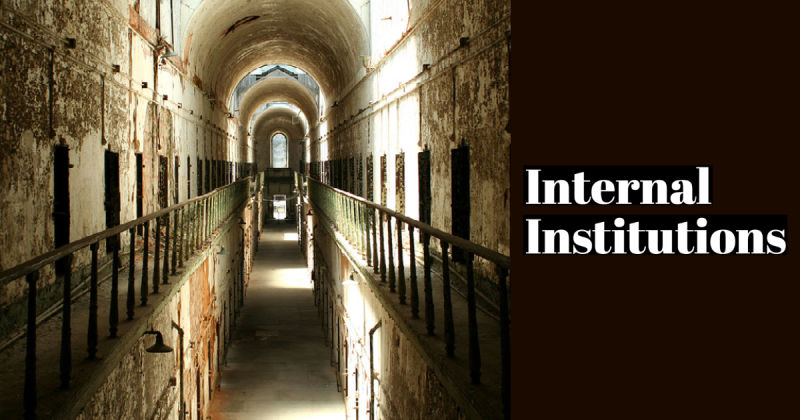1st October 2012 | By Simon Duffy
What are the institutional patterns of thought which dominate our minds from within?

The individual and groupings of people, have to learn that they cannot reform society in reality, nor deal with others as reasonable people, unless the individual has learned to locate and allow for the various patterns of coercive institutions, formal and also informal, which rule him. No matter what his reason says, he will always relapse into obedience to the coercive agency while its pattern is within him.
Idries Shah from The Caravan of Dreams
Idries Shah is an interesting Islamic scholar whose book I found in a second-hand book store recently. This passage stood out for me partly because of his interesting and unusual use of the word institution.
I tend to use the term 'institution' in one of two senses. I talk about institutions in a wholly negative sense when I refer to those campuses, asylums and hospitals that began as efforts to segregate the poor and needy and then accelerated during the period of eugenic panic when the objective was to remove people from humanity by effective sterilisation or murder.
However the word institution also has a second, much more positive sense, meaning any kind of human or social creation that has been established and which has stood the test of time. For example, the monarchy is an institution; Bolton Wanderers is an institution.
So what does Idries Shah mean by the patterns of coercive institutions which we find within us? What relevance has this to the challenge of reforming society?
One pattern, that we find in many revolutionaries, is the double-edged belief that power is all about unjust rulership. The revolutionary identifies the ruler as unjust, and may manage to overthrow that ruler; but they then end up living out exactly the same pattern of injustice. Is it that the revolutionary secretly knows no other way to rule than by cruelty and injustice? The dominant pattern which inspired his revolt ends up ruling him and dictating his actions.
Do we see an institutional pattern in those who seek to reform systems of welfare. They may believe the system is unjust, patronising and disempowering. So they seek to shift power - reorganising funding, organising new supports, reforming structures. But all the time their actions seem to suggest that people themselves are not really capable of solving any problems for themselves. We have to do it all for them; they are not good enough or strong enough. The battle to defeat paternalism can quickly become very patronising.Idries Shah is not suggesting reform is impossible, nor that these patterns can be eradicated. Rather it seems to me that he is suggesting that these are temptations that we need to watch for and overcome. Revolutionaries must ask themselves how they will avoid replacing the tyrant with greater tyranny. Welfare reformers must ask themselves how they will avoid replacing one type of control with another.